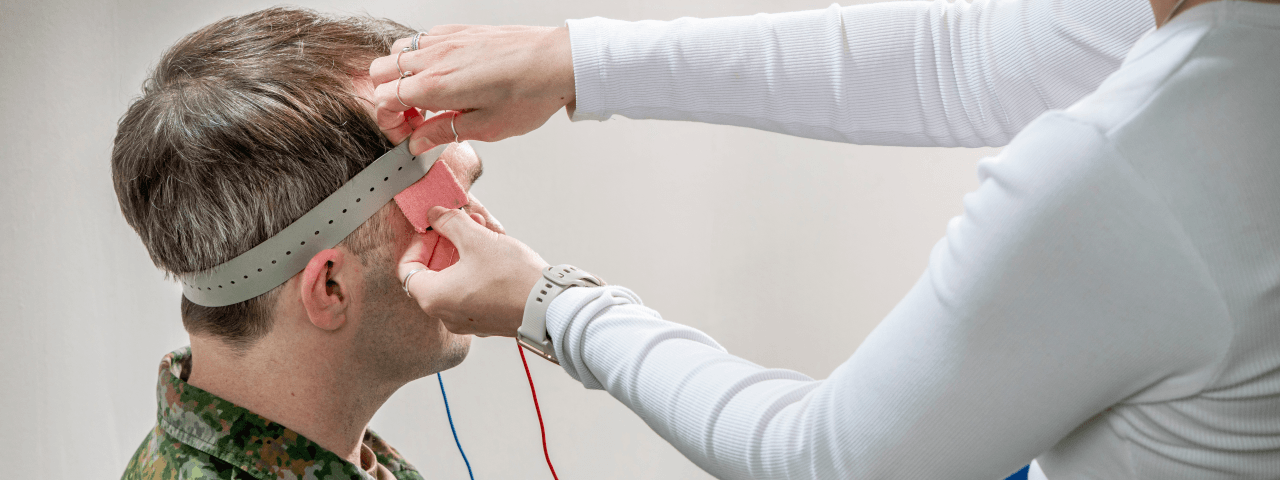This study investigates whether whether brain stimulation helps to better control your own reactions in threatening situations.
Introduction
Being able to deal well with threat or unpredictable situations is very important. It helps to function well operationally and to stay mentally healthy. Techniques that can improve this are therefore receiving increasing attention. Brain stimulation is a new technique that could potentially be used for this objective.
Transcranial Direct Current Stimulation, or tDCS, is a widely used and mild technique to enhance or inhibit brain function. When using tDCS, a weak direct current is sent through two electrodes on the head. This can enhance or inhibit brain activity in a specific brain area. In this study, we aim to enhance brain activity with tDCS in the frontal part of the brain, the prefrontal cortex. The prefrontal cortex plays a role in controlling your own reactions to threat and unpredictability.
The study consists of a short intervention in which participants receive brain stimulation with tDCS three times, or three times placebo stimulation (control group). We test whether this tDCS intervention improves control over reactions to threat. This will be measured by physiological startle responses and questions about the nervousness or fear experienced by participants. We also test whether the tDCS intervention affects cognitive performance and brain activity. This is assessed by computer tasks and brain activity recordings (electroencephalography, EEG).
Project overview
Objective:
- To test if brain stimulation using tDCS helps to better control reactions to threat.
- To test if brain stimulation using tDCS improves cognitive functions such as memory and attention.
- To investigate the influence of this tDCS intervention on brain activity.
Target population:
Soldiers (18 years and above) without mental health complaints.
Timeframe:
The study was conducted between 2020 and 2021.
Results:
The tDCS intervention temporarily improved performance on a computer task measuring memory and attention. This effect was found only in younger participants. The tDCS intervention had no effect on responses to threat, cognitive functions or brain activity. In summary, the results provide an indication that tDCS might help to learn a cognitive task, but the study does not provide convincing evidence for lasting positive effects of tDCS on control over stress reactions in military personnel.
